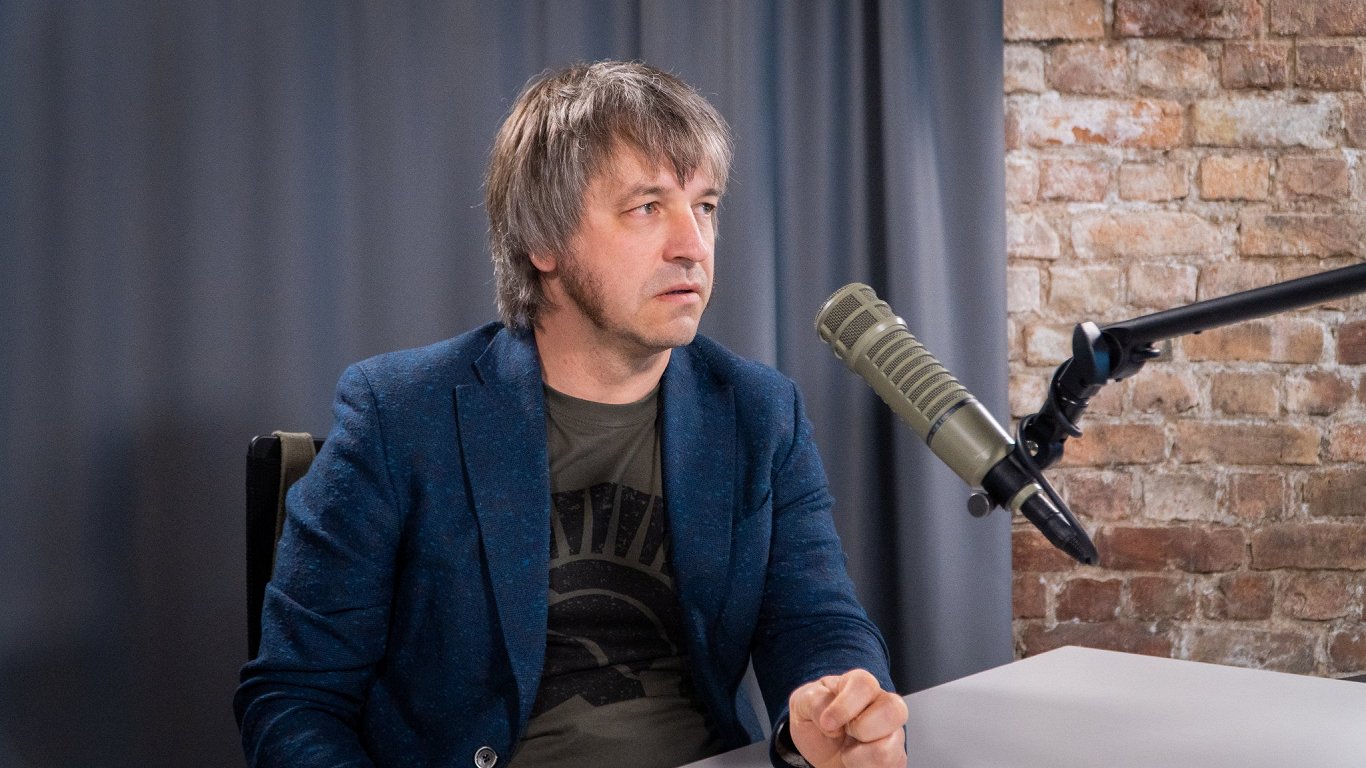Reasons for ethnic and linguistic divides should be sought not only in the sharp rhetoric of politicians on various ethnic issues, but also in public communication strategies, he suggests.
Mārtiņš Kaprāns: We can never have 100% unity or cohesion. But we can talk about a conditional consensus in society on the big issues. For example, when talking about Ukraine. The issue of Ukraine and the desire of the public to remain vigilant about what is happening in Ukraine, despite the fatigue of the war, is still sufficiently high. I measure its height when talking about public opinion polls, where the willingness to help Ukrainian refugees is also quite high. Compared to the situation two years ago, if it has decreased, then only slightly. The largest part of Latvian society, including a large part of Latvian Russian speakers, is on this side. But of course you have to look further. There are issues that are still divisive.
Latvian Radio: What are these issues?
Well, for example, if we are talking about understanding history. Then there is still a rather divided social memory. Despite the fact that the [Soviet-era] monuments are disappearing, and the streets have been renamed. All this, as they say, takes its course and fortunately, it happens without external visible conflicts. However, all the old stories of confrontation remain in the undergrowth.
There is also a clear state policy regarding the education system and strengthening the Latvian language, which is, of course, correct, but all this has come as an avalanche after 2022. Perhaps this avalanche of change in the last two years is another reason why we still see a huge portion – if we go back to the Russian speakers – who are confused about their identity.
How does this confusion manifest itself?
One direction which is worth thinking about with the political behavior of these people, we probably already saw in the Saeima elections [of October 2022]. And we will see it also this year in the European Parliament elections.
There is one clear trend that indicates a regionally radical situation, that is, basically in Latgale, we can notice radicalization trends, which have manifested themselves in the fact that one new political force, strongly populist and perhaps also oriented towards a more extreme message – "For Stability!" – has established a bridgehead. But at the same time, many who were probably more moderate and now can't really find themselves in the political spectrum and are disappointed in their previous representatives "Harmony", find some less politicized or economically oriented forces that do not clearly stand up for [only] the interests of Russian speakers.
How important do you think it is to prevent these undecideds from drifting into extremism?
How the situation in Ukraine and Russia will develop also affects the Russian-speaking mood here. Looking at how low support for Putin is in general among Latvian Russian speakers.
I would like to say that, however, any action on the part of Russia aimed at further escalation in Ukraine will further alienate and reduce the possibility of fighting for the minds and hearts of these people. There, its chances will decrease, but you must be very alert. It's just that our Russian-speakers will not be 'given away' by Russia, the fight for them is ongoing and will continue.
Latvians and Russians – how do you think that dynamic has changed?
There are different data, so I don't want to generalize too much. But one set [of data] that I saw after the start of the war and last summer shows a significant increase in the fact that people in Latvia expect an ethnic conflict – both Russians and Latvians. Among Latvians, it increases more moderately, but among Russian-speakers it is particularly pronounced.
At present, attempts to radicalize [society] through individual efforts can be noticed from time to time in the public space. Political forces are also trying to make a connection there. But the fact that such expectation of conflict has grown in society, especially in the part that feels the most pressure, is a cause for concern. By the way, the National Security concept also talks about the fact that latent ethnic conflict is growing in Latvia [though] It is not visible on the surface.
The million-dollar question – how to calm this latent conflict?
This may not be a million dollar answer. Many ambitious policies aimed at social cohesion have been launched. First of all, I would like to emphasize the education policy and steps to strengthen the Latvian language as the only language in the education system. It is great and should have happened a long time ago. In fact, these decisions and mechanism were strengthened in 2018. At that time, it also went to the Constitutional Court, and they concluded that making a decision to switch to the Latvian language is one thing, but another thing is resources. Firstly, the supply of educators, which is a huge problem. If the policy is as lame as it is with the current provision in terms of educators, then the latent conflict will be reproduced rather than mitigated and aired.
You said that after the start of the war there was an avalanche of different changes and decisions. There is certainly a risk of haste, which appears also in this matter of education. Do you see any of these decisions as a mistake and causing more risk than benefit?
Essentially, nothing has been a mistake. Also freeing the memory space from Soviet monuments and symbols. But the rhetoric and the style and the form in which some of the decisions have been implemented have not been the most optimal in terms of cohesion.



























